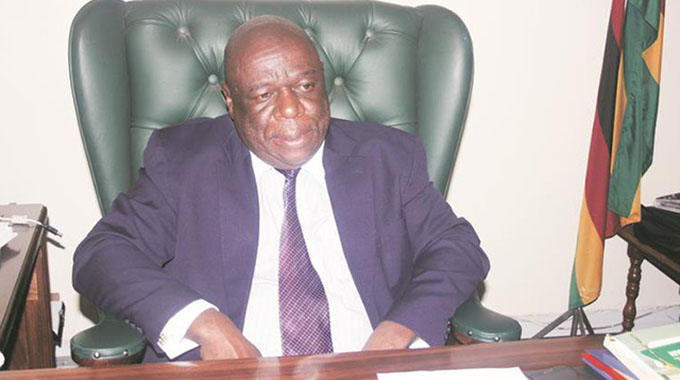Tobacco sector remains firm despite Covid-19

Sifelani Tsiko
Agriculture and Environment Editor
Zimbabwe’s tobacco production is expected to stand firm in the next cropping season despite some major markets imposing restrictions on movement, closing borders and in the case of South Africa banning cigarette sales.
Even though the Zimbabwe Farmers Union and the Tobacco Industry and Marketing Board (TIMB) could not readily give projections on the likely impact of Covid-19 on tobacco production, the bodies say they don’t expect drastic changes in the country’s output.
Tobacco farmers and tobacco auctions were exempted from the lockdown and curfew regulations.
To cope with the need to keep numbers down there was more local delivery with smaller deliveries amalgamated for transport to the sales floors and groups of small-scale growers sending a single representative.
“I don’t foresee any marked change, which would lead to a reduction in the production of tobacco in Zimbabwe,” said ZFU director Paul Zakariya.
“Covid-19 is just one among other major factors that may affect production. For us the rising cost of inputs in US dollar terms and maybe a drought could be the main driving factors that could lead to a reduced output of tobacco in the country.
“We are training farmers to enforce Covid-19 prevention measures as advised by the WHO and Ministry of Health and Child Care such as social distancing, use of personal protection equipment and hygiene. Farming is a time-sensitive sector and restrictions of movement for farmers to secure inputs might affect planting and production.
“We are appealing to our law enforcement agents to respect the letters we are giving our farmers to secure inputs. Delays in the procurement of inputs can have a knock-on effect on tobacco production levels.
“Added to this, is the worrying rise of input prices in US dollar terms. Apart from drought, rising input cost in US dollar terms could deal a severe blow to the production of tobacco, a major foreign currency earner for Zimbabwe.”
Regulations have made it difficult for most farmers to reach markets and source key tobacco growing inputs.
Farmers complain that law enforcement agents’ interpretations of lockdown measures were complicating matters, leading to delays in the procurement of inputs.
“If our tobacco production levels fall, it’s not because of Covid-19 alone, but because of rising input costs, delays in the payment of farmers and delays in the sourcing of inputs by farmers.
“Rising input costs are eating into the bottom-line of our farmers’ earnings. Covid-19 yes, it has had an impact on the market and in the procurement of inputs, but this can be managed so that we don’t affect our tobacco production capacity,” Mr Zakariya said.
TIMB chief executive Andrew Matibiri could not be reached for comment.
According to the latest Global Smoking Tobacco Market and the Impact of Covid-19 in the Medium Term report, the tobacco market in the world is forecast to reach US$66,42 billion (in retail prices), increasing at an average of 2,60 percent a year between 2019 to 2024.
This will certainly bolster hopes for the survival of the Zimbabwean tobacco industry despite the growing anti-smoking lobby and harsh taxation policies in major markets.
However, most of the major measures have already been imposed, such as public-place smoking, point-of-sale communication and display, graphic health warnings and plain packaging among other restrictions. The measures mainly inhibit new generations smoking, rather than stopping the existing smokers.
The tobacco industry is a complex web with various competing interests of both African and global multinational corporations. Multinationals still earn billions from tobacco produced by African countries.
Despite a drought that ravaged Zimbabwe in the 2018-19 cropping season, the country still managed to produce a record-breaking tobacco output, reaching an all-time high of 258 million tonnes.
Tobacco is a major cash-cow for Zimbabwe and it generates an average of US$1 billion annually, helping the country to import fuel, pharmaceuticals and other key industrial raw materials.
In the current marketing season, farmers have so far sold 159 million kilogrammes of tobacco worth US$390 million as trading reaches its peak under the WHO Covid-19 health guidelines.
Planting is expected to start on September 1 for the irrigated crop while for the rain-fed crop, planting would commence around October.
About 224 million kilogrammes of tobacco are expected this season, down from the previous year’s output level of 259,5 million kilogrammes owing largely to a severe drought that hit the country, according to the TIMB.









Comments